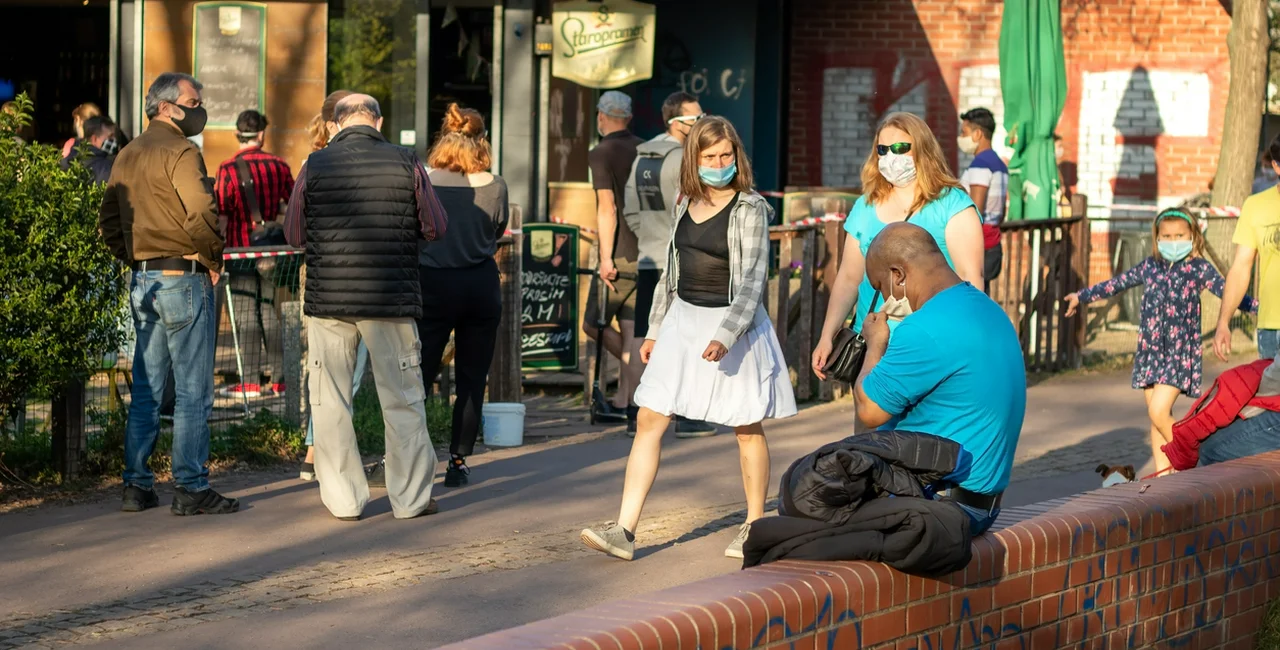There were 90 new COVID-19 cases reported in the Czech Republic on Sunday, according to the latest data released by the Czech Health Ministry this morning. The country now has the most active coronavirus cases it has ever had, according to official numbers.
This is the first time in several days that the number of new cases has dipped below 100; however, officials performed 2,334 new tests on Sunday, much lower than in previous days. In contrast, on Friday, almost 4,000 people were tested and 3.29 percent of them were positive.
PARTNER ARTICLE
There are now 4,826 known active cases in the country, roughly 30 cases more than the country’s previous mid-April maximum.
More than 8,700 people have recovered from the novel coronavirus since the pandemic began. Currently, 134 people are hospitalized with the disease, 21 of which are in serious condition, and there have been 359 deaths in the country. Most COVID-19 deaths were reported in Prague and the least around Zlin, south Moravia.
There have now been 13,945 COVID-19 cases in the Czech Republic since the beginning of the coronavirus crisis in mid-March.
The government’s healthcare appointee and former Central Crisis Staff head Roman Prymula said the daily increase of cases is not large enough to impact the effectiveness of the country’s healthcare system in a way that would legitimate fears of a second wave of the virus.
“The number does not really reflect what is happening in the healthcare system. Many people are spreading the virus, but the course of their infection is clinically negligible. When we look at the healthcare system, we currently have 131 hospitalized patients, ten persons with heavier symptoms, and one in need of a cardiopulmonary bypass,” Prymula told Czech television. “This means that the current situation cannot really be compared to the beginning of the first wave.”
Prymula added that a second wave could be considered if the daily increase in cases was between 300 to 400.
However, over the past week, Prague saw a slight uptick in the number of coronavirus cases in the city. Eighty-three new cases of COVID-19 were uncovered in Prague last week, an increase over the 69 cases reported the previous week, according to figures released by Prague public health officials. The capital city now has approximately 7.78 people per 100,000 infected with coronavirus.
While the Czech capital is not one of the major coronavirus clusters, there are still some lockdown measures in force. For example, face masks must be worn in the metro and at mass events with over 100 people in interior spaces.
Despite the fact that Health Minister Adam Vojtech (for ANO) said Friday the situation in Prague was “more or less constant,” meaning that there are no major clusters and the situation is not escalating.
There are several regions with clusters of coronavirus cases, including the Karviná region, the neighboring Frydek-Mistek region, the Mělník region north of Prague, Vlčnov in the Uherské Hradiště region, the Kutna Hora region in central Bohemia, and Jihlava in the Vysocina Region.
The Karviná region remains the most severe in the country with 48 positive tests per 100,000 people. A third of the positive coronavirus cases on Sunday came from the Karviná region, Chief Hygienist Jarmila Rážová told Czech Television this morning.
Starting today, sanitary measures will be tightened in Moravia-Silesia over the increase in COVID-19 cases. Residents in the entire region, not just the Karviná district, will have to wear face masks indoors and on public transit.
Work on a coronavirus vaccine continues, though new reports show that it may not be made in Czech Republic as previously expected. According to a report in iDnes, the American company Novavax recently bought a plant near Kostelec nad Černými lesy near Prague for its production.
However, the vaccine may not be fully completed in Czech Republic and instead, it will be completed in Germany, Roman Prymula, an epidemiologist and government commissioner for health research, told Czech television.
In travel news, Slovenia has again returned the entire Czech Republic to the list of safe countries, canceling its restrictions valid for tourists from the Moravia-Silesia Region as of today, the Czech Foreign Ministry has said in its Traffic Light Map on its website.
Residents traveling from the Moravia-Silesia region will no longer have to be quarantined in Slovenia. It’s important to note that Croatia remains on the Slovenian list of medium-risk countries, according to the Czech Embassy in Ljubljana. The embassy warns that Czechs coming home from Croatia cannot spend part of their holiday in Croatia without quarantine; instead, Czechs have 12 hours to transfer from Croatia to Czech Republic while in Slovenian territory.
The pandemic will may also have an impact on the way you vote in Czech Republic come the fall. According to a report in Seznam Zpravy, people in quarantine during the fall regional and senate elections may lose the right to vote. At the moment, officials do not plan to postpone the elections, although there is some debate and some blowback regarding the news that certain people may not be able to head to the polls.
“When the regional hygienic station orders quarantine, it is an obstacle to the exercise of the right to vote according to the electoral law. In such a case, one does not vote and there is no portable urn behind him,” Petr Mlsna, the Deputy Minister of the Interior, said.












 Reading time: 4 minutes
Reading time: 4 minutes 



























